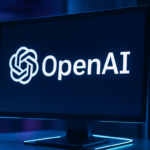Encube, based in Stockholm, is stepping into the spotlight with the launch of its AI-powered platform designed for hardware development teams. By incorporating advanced AI tools, the company aims to alter how hardware products are designed, manufactured, and optimized across multiple industries. The fresh funding of $23 million is expected to fuel Encube’s expansion efforts both throughout Europe and in the United States, marking a significant step in their growth strategy. Encube emphasizes the importance of adapting design processes that not only focus on the product’s aesthetics and functionality but also its production costs.
In past endeavors similar to Encube, other companies have aimed to streamline hardware development by integrating AI technologies. However, while many of these initiatives showed promise, they often struggled with widespread adoption due to complexities in user interface or integration challenges with existing systems. Unlike these predecessors, Encube seems to be gaining traction by prioritizing usability and direct integration into current workflows. By doing so, it distinguishes itself from earlier attempts, positioning its platform as both accessible and vital in today’s evolving production landscape.
How is AI Reshaping Hardware Development?
Encube’s platform leverages AI to address the evolving challenges in the manufacturing sector, predominantly shaped by geopolitical shifts and stricter environmental regulations. The tools provided by the company enable hardware teams to identify inefficiencies early, thereby decreasing time-to-market and lowering production expenses. By facilitating seamless collaboration across various devices, Encube positions itself as a vital resource in making informed design decisions, supporting companies like Volvo Group and Beyond Gravity.
What Does the Future Hold for Encube?
Encube plans to utilize its recent funding not only to expand its geographical presence but also to deepen its investment in AI technology. With aspirations to support Europe’s industrial sector and increase AI adoption rates, the company is setting ambitious targets. The funds will also help strengthen existing partnerships and potentially lead to new collaborations, providing more opportunities for their innovative AI solutions to be integrated into large-scale hardware projects.
Encube’s CEO, Hugo Nordell, underlined the company’s mission, stating:
“Hardware development is a balancing act between how a product looks, functions and what it costs to produce.”
The idea is to curb rising production costs by rethinking the initial phases of product design, ensuring that manufacturing practicality is considered from the beginning.
The platform has demonstrated notable successes through collaborations with major industrial players like Scania and Cognibotics, showing reductions in production times and costs and improvements in productivity. By automating tedious processes such as tracking design changes, Encube enables teams to navigate complex projects while streamlining workflows effectively.
Investment perspectives highlight positive expectations for Encube’s direction. Ralf Usinger noted the platform’s ability as a standout in innovation:
“Encube is one of the most promising innovations I’ve seen in hardware engineering in the last 30 years.”
With support from investors like Kinnevik and early supporters such as Inventure, Encube appears poised to redefine hardware design and production methodologies.
The potential for Encube’s platform extends into various sectors, enabling a transformation in product development processes. As industries continue to adapt to new challenges in sustainability and competitiveness, tools like Encube’s AI platform may become crucial in paving more efficient and effective pathways from design to production. The continuous adaptation of these technologies suggests a future where hardware development increasingly aligns with ecological and economic demands.










